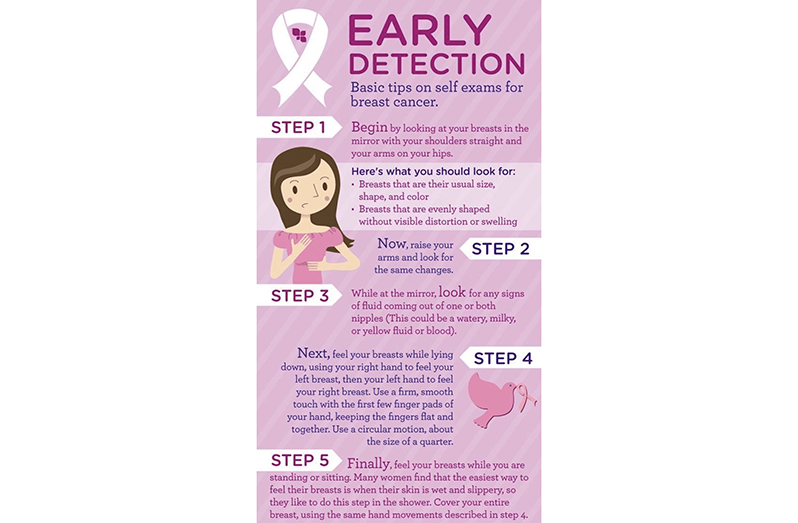THIS is your annual reminder that breast cancer screening and awareness are necessary, especially for women over 40. It’s officially “Pinktober”, and the theme this year is, “No one should face breast cancer alone”. It emphasises the point that it takes a community effort to help make a difference in the lives of survivors and patients.
In October, we reflect on and discuss the concerns and worldwide impact of this cancer. Breast cancer is quite a common form of cancer affecting women worldwide. In every forum and discussion, you’ll hear that early detection is an essential step towards decreasing the likelihood of late-stage cancer. 1 in 8 women are likely to develop breast cancer in their lifetime. This health crisis occurs when cells in the breast tissue grow uncontrollably.
The World Health Organisation estimates that there are approximately 2.5 million persons diagnosed with breast cancer annually. Further, breast cancer is the cause of 670,000 deaths globally in 2022 alone. While mortality rates have slightly improved, the lack of awareness and early detection is still a sore issue for women below the poverty line. Early detection is an important factor in helping to reduce the mortality rate further. These detections can be done through self-examinations, clinical or medical breast examinations, and mammograms. If you have a family history of breast cancer, it’s advisable to do frequent tests. We should also make necessary adjustments and advances to the public health systems in Guyana as technology advances as well. This is to ensure that Guyanese have access to updated and reliable medical care at all times.

Advocates and health professionals need to educate the public on the importance of early detection and prevention. Many women are fearful of tests because of misconceptions such as pain during the examinations. Many women are also concerned about discrimination and sexual harassment during examinations as well. These are all barriers, and should be addressed at all levels in communities. I am also using this platform to advocate for more screening sites in rural areas, especially in the Indigenous communities. These tests are a right to health, and no one should be denied the opportunity to be examined simply because they cannot afford to do so or because of where they live.
The early stages of breast cancer can be asymptomatic (without common symptoms). As such, you cannot wait until you’re seeing physical symptoms as well. Some physical symptoms of breast cancer include areas of discolouration on the breast, warmth or burning breast, enlargement in one breast, inverted or retracted nipples, swollen lymph nodes in the underarm, and dimpling or pitting of the breast. Awareness of breast cancer should transcend cultural barriers because the examination itself might be considered inappropriate for some cultures.
This health crisis needs attention and awareness every month and every day of every month—not just in October. This month goes beyond wearing a pink ribbon.
It is about remembering the lives lost, honoring the survivors, and making sure we save as many lives as we possibly can. I urge you all to continue to advocate, support research, and ensure all women have access to equal healthcare rights and opportunities. I hope we can use this time to normalise the conversation surrounding breast, breast health, and breast cancer. It should not be sexualised or seen as a taboo topic. According to the Cancer Institute of Guyana, a mammography appointment can be scheduled by calling 592-225-5701. I hope you get tested soon after reading.




.jpg)










